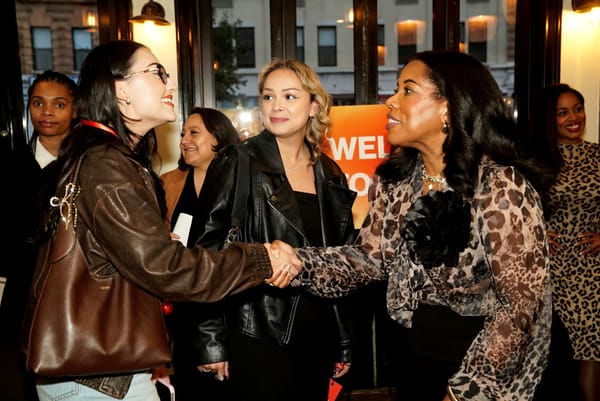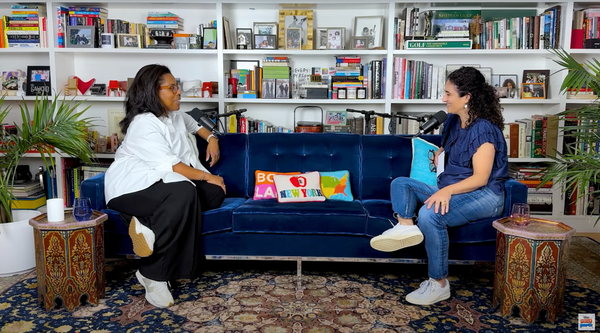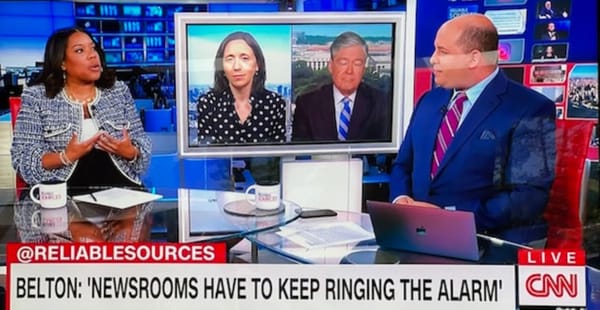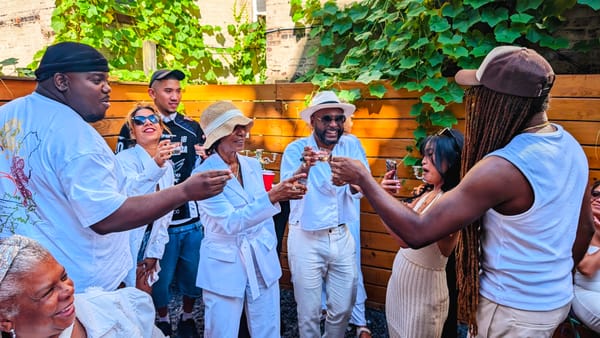Compulsive, Impulsive and Oh-So-Destructive: Money, Bipolar Disorder and Me
The first step to recognizing you have a problem is admitting it.
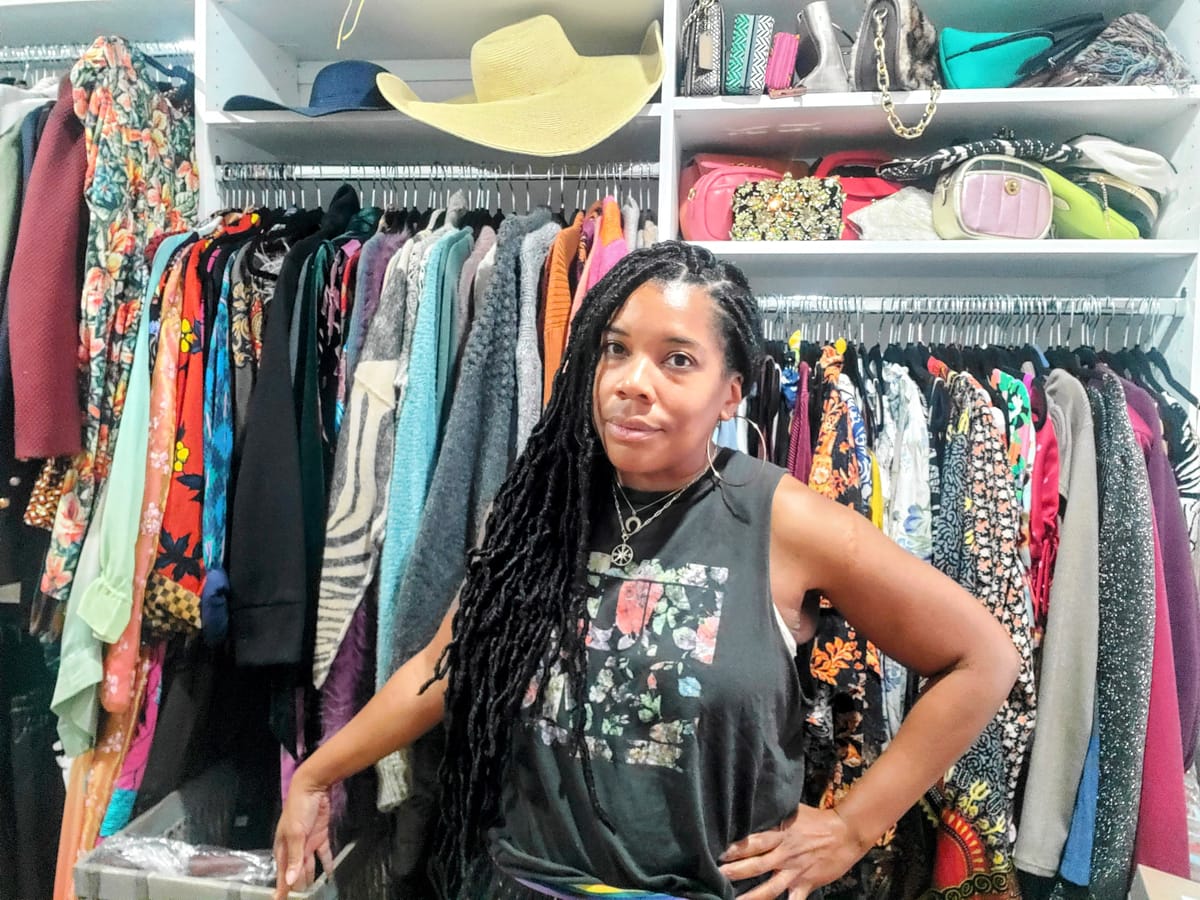
I love clothes. And shoes. And bags. And jewelry.
It’s kind of a problem.
I always knew it was a problem, but I couldn’t admit it to myself for decades. Mostly because I felt so much shame about it. It also didn’t help that both my parents were “good” with money — as in one was great at balancing a budget and investing, and the other just never bought anything that cost more than $10 and yelled at me over wanting to spend $20 to apply to colleges.
It didn’t start out that way. As a kid I almost always had money. Money I saved up that my father gave me for getting As. Money I used to open my first savings account with my dad from babysitting the neighbors’ kids. Money from when I worked as a student in the local Junior Achievement program that taught kids about entrepreneurship and hard work. In college, I had my paychecks from working at the student newspaper all three years-and-a-half I was at Southern Illinois University Edwardsville. I used it to buy my own cell phone and pay the monthly bill. I didn’t open any credit cards in college, as I knew all the dangers of it. And my father had taught me how to balance a checkbook — back when that was still a thing.
The Substack of the Writer Formally Known As The Black Snob is a reader-supported publication. To receive new posts and support my work, consider becoming a free or paid subscriber.
But as all this was going on, a narrative started to form from my parents that I was “bad” with money. Mostly because I did like to buy things I knew my parents had no interest in spending their money on for me. Like, I loved music (and still love music), so I bought a lot of cassette tapes and CDs, to which I constantly heard chatter from my parents about how wasteful that was. (They just kind of ignored that our basement was full of vinyl records owned by, ahem, my parents.) I once got my purse stolen while taking classes at the local community college as a high schooler — my parents blamed me and accused me of just wasting my money and not getting robbed at all. And as much as I loved clothes back then, I didn’t spend my money on them because the clothes I wanted were too expensive for my little $20 and $30. Instead, I let my mother take me shopping where I gamed her system of never spending more than $10 by finding 10 items all under $10 at Marshall’s so she was convinced she was getting a bargain.
But I always got the impression from them that no matter how much I saved or didn’t save, it didn’t matter. They’d decided I was bad with money because I wasn’t exactly like them — basically never going out or buying anything of note for themselves outside of birthdays and Christmas — and therefore I had to hear about it constantly whether it was true or not. For some reason, this backfired completely as, eventually, I stopped trying to please them, and just decided to buy whatever I wanted anyway because they were never going to believe me and would criticize me no matter what choices I made.
Hindsight is 20/20 and looking back, I can say “Hey, this would have been easier on me if they’d worked with me and helped me form healthy habits instead of being so negative all the time and reprimanding me whether I was overspending or not!” But I’m 45 now, not 15. And back then, it was pretty common for parents to use negative reinforcement for everything. Today’s parents seem overwhelmingly concerned about traumatizing their kids or making them feel bad, then, in turn, giving them complexes because of it, whereas most parents before 2000 did not give two shits about messing their kids up through negative reinforcement. They also, quite often, could not be bothered. With anything. Ever. All this touchy-feely, “gentle parenting” is some newfangled shit that our Boomer parents would never.
I’m sure my dad would probably try a different tact now. (My mother, not so much. She had a scarcity mindset from growing up in poverty in the deep South. Her fears around money were irrational at times and she probably needed help for it, but nobody was handing out therapists to impoverished children traumatized by that poverty back in the 1960s.) But the damage is done. So it was always on me to process and deal with it.
But I didn’t.
It initially didn’t have to be this way, but a few things threw me off my path. First, I got married young, at 23, and the marriage was as destructive as it was scaring. In nine months, we went nearly $10k in debt with only me working, trying to survive in Midland, TX off my $22,000 a year salary as a newspaper reporter. I filed for divorce in the fall of 2001 after he moved out and struggled with suicidal ideation and depression afterward, unable to reconcile my failure at marriage with how I’d idealized the institution as a young person, and put it on a pedestal as this sacred thing that I’d ruined for myself and my future.
Secondly, after I moved to Bakersfield, Calif. for my second newspaper gig, my depression worsened, coupled with confusing bouts of hypomania that filled me with creativity and energy, but also fueled overspending and impulsive behavior, letting me down when I would crash and have to deal with whatever mess I’d gotten myself into. After a while, I couldn’t bare to check my bank account or open my mail, not wanting to deal with my mounting debt and dwindling bank account. Plus, I was only making about $34,000 a year.
Asking my father for money was difficult. Not because he wouldn’t help, but because I felt such incredible shame and couldn’t handle my father’s reactions to my asking. He never didn’t send me money, but the conversations were so excruciating. I could barely get my asks out between sobs, I was so upset. Neither of my sisters seemed to ever need my family’s help. I’d grown up hearing how awful and irresponsible I was with money and was afraid of being reprimanded yet again for something I honestly didn’t have much control over at this point. I was sick and only getting worse as I would be diagnosed with Bipolar Disorder a little over five years after my divorce.
Thirdly, it took a minute for both me and my family to acknowledge and accept how sick I was. Honestly, I probably should have moved back home after the divorce, but I wanted to prove so much — to myself, to my family. But ultimately I could not make it on my own and ended up quitting my job and moving back home at 29.
Last, but definitely not least, my overspending (and overeating at times) was often fueled by my screwed-up reward system. When I was depressed I would spend to cheer myself up. Then I’d overdraw my account, and fall back into a deeper depression that I would want to spend my way out of once payday came. The end of the month would come and I wouldn’t have enough money for both rent and food, so I’d just delay paying my rent and would spend the rent money on clothes and food. It was a vicious cycle. But it wasn’t just depression that triggered it, when I was happy (which was rare back then), I’d want to celebrate or “invest” in myself, so I’d spend money. When I was lonely or bored, which was almost all the time since I was so far away from my family when I lived in Texas and California, I would spend money. In Bakersfield, I moved apartments four times, not because anything was necessarily wrong with the apartments, but I was convinced my misery was actually in the place where I lived instead of my head and thought, wrongly, that by changing addresses I could change my circumstances and mentality. It was convoluted and wrong, but I still moved nearly every year I lived there, running away from sadness when the call was coming from inside the house my head.
My father had a solution for my problems though! It went beyond me moving home and working on getting well. It was simple. I should just “make more money.”
In theory, this made sense. Trying to live off of less than $45k a year while now living on the East Coast, as I did for most of my later career, was not the best for saving or surviving. But this advice was also a band-aid on a bullet wound because it didn’t address any of the underlying psychological issues I had, or the crushing loneliness from moving for my career every few years and having to start over, or the bad habits I’d developed. More money just meant having more to manage, more to spend, more to go into debt with, and more to indulge me with rather than deal with my problems, which, for years, had been legion even in my best of times.
Denial is a hell of a drug, and I was in it for years after I moved to New York and started making more money. First in 2012 when I worked as a head writer for BET, then again when I returned to New York in 2016 as Editor-in-Chief of The Root. Journalism (and television), as a field, is competitive, pressure-filled, stressful, and mentally taxing. Sometimes it’s exhilarating. Other times, it’s debilitating. It also didn’t help that literally EVERYTHING about NYC was a trigger for me — from the tall buildings and bright lights to the rats and roaches to the dirty streets filled with people, people everywhere to the occasional violence and the feeling of never being safe anywhere but my house, then living in fear of that illusion being shattered by a break-in or robbery. The stress made me eat, it made me spend, it made me miserable. And it was a misery that stuck with me for about two years until my mother died in December 2018.
My mother’s death did not affect me in the way I expected. She passed after losing her battle with dementia, no longer able to care for herself or recognize any of the people she’d once loved. While I was sad she was finally gone, she’d been “gone” for years at that point, and death was both a release and a relief from the pain she’d been in. Her death solidified something for me — I was living my life waiting to die instead of living my life to live, and I wanted, to finally, live. I wanted to travel, experience things, fall in love, take risks, get outside of my comfort zone and finally tackle issues hidden in the darker recesses of my brain, the things I’d buried, the things I’d long denied. I wanted to expose them to sunlight and deal with them, finally.
And while it was long and hard to contend with my issues, money was the last real Big Bad standing in my way and I didn’t want any part of it.
There were so many things I would have rather gone to therapy to address rather than my spending habits. Talking about loneliness and my terrible dating experiences? Let’s do it. Combing through the reasons why I binge ate or starved myself? Perfectly fine. Go through my childhood memories for the wounds my parents and the kids who bullied me gave me? I got you. But money? Let’s not and say we did.
Needless to say, by the time I started addressing my issues and compulsions around money, it wasn’t so much an “issue” but a “crutch,” a leftover bad habit and relic from when my mental illness was more severe. I was pretty undisciplined. I’d go through periods where I’d save plenty, only to end up paying it all out to the IRS when tax time came or paying off a huge bill I’d run up. I was still doing my own taxes long after most people at my level had started utilizing accountants. I made a lot. I spent a lot. So then I would make more only to spend more. The only difference this time was all my bills were always paid, and I wasn’t facing anything so dire that I needed to call my father for help.
Thank you for reading The Substack of the Writer Formally Known As The Black Snob. This post is public so feel free to share it.
Then there was the spending tied intrinsically to my illness — like the subway made me think of death so I avoided it at all costs and took Uber everywhere, even when the subway would have been both more convenient and cheaper. Plus, I often didn’t feel safe walking around alone, fueling even more Uber and cab rides. I still would spend money when happy or sad, which with my vacillating mood swings was pretty much all the time, causing my closets to swell with clothes and shoes I never even wore and didn’t bother to return.
[I have a whole issue with procrastination and follow-through. If it weren’t for the fact that I can have my medication delivered to me, I probably wouldn’t be on meds because some days having to go to the CVS was just “too much.”]
I don’t even want to tell you how many earrings I own when I literally wear the same pair of cheap $10 gold-plated hoops everywhere. I don’t want to touch on how many tennis shoes I have, when I pretty much wear the same dirty white Puma platforms almost every time I leave the house.
It had gotten out of hand. Even though I wasn’t “hurting” myself in an obvious way anymore, I was wasting so much and didn’t know how to stop.
The last three years really put this all into perspective. I was both better off and somehow worse, so something had to change or, everything would have to change. Likely by force if I didn’t do it myself. This was the last big mental challenge for myself, and I just needed to finally acknowledge that 1) I had a serious problem, and 2) I needed help. So I got an accountant and gradually started cutting expenses.
The last big hurdle for me to tackle though was my shopping habits. I basically have banned myself from buying any new clothes or shoes for the next four-to-six months. Unless I literally lose these Puma platforms or my $10 hoops fall out of my ears (as they’re wont to do), I wasn’t going to add more to my closet that is already insane. And rather than donate or throw out the vast majority of my clothes and shoes — which had increasingly become more expensive over the years — I decided I needed to recoup some of that money and sell them, putting the proceeds from the sales into my savings account. In fact, all money not from my salary went into that savings.
I also started taking the subway again and walking more.
I also cut out eating out and chose to cook at home.
I also moved to Brooklyn and out of the city, which is a bit less stressful and a mite cheaper.
And I tried to be gentler with myself. Yelling at and beating up myself over something related to my mental illness was pointless. It just made me feel worse. It didn’t make me change or get better. I needed to be kinder and more patient with myself, the same way I could be kind and patient with others. After all, I wasn’t being bad with my finances to spite anyone. I wasn’t doing it because it was “fun” for me. I was doing it because I was sick. I needed to get at the root causes for the overspending, acknowledge I had a problem, ask for help, then apply the knowledge I learned from getting help by trying to stick to a budget.
The key word here is “try.” As in, it was going to take time and work and I would likely screw up and backslide, but as long as I didn’t stay in that over-spending place and fall back into mindless consumption or negative thinking around it, I could grow. be OK.
I’m better now, but it’s a process. And it’s hard to unlearn, unwire and unravel all the things that caused me to become this way in the first place. I’ll never be my “don’t spend more than $10 on any item” mother or my father who sometimes buys 1-ply toilet paper. I’ll never be someone who literally never goes on vacation, never buys anything “nice” or refuses to dine out at a restaurant with cloth napkins. I made a promise to myself that I would live my life.
And sometimes that costs money.
The Substack of the Writer Formally Known As The Black Snob is a reader-supported publication. To receive new posts and support my work, consider becoming a free or paid subscriber.
